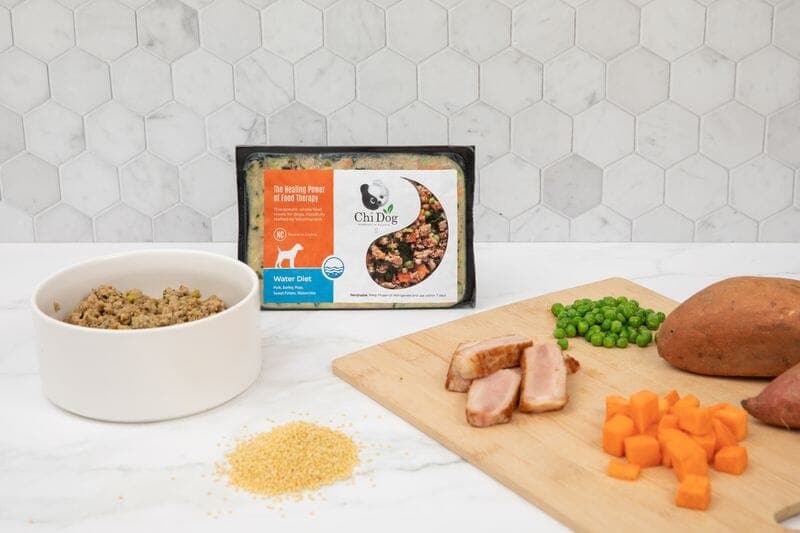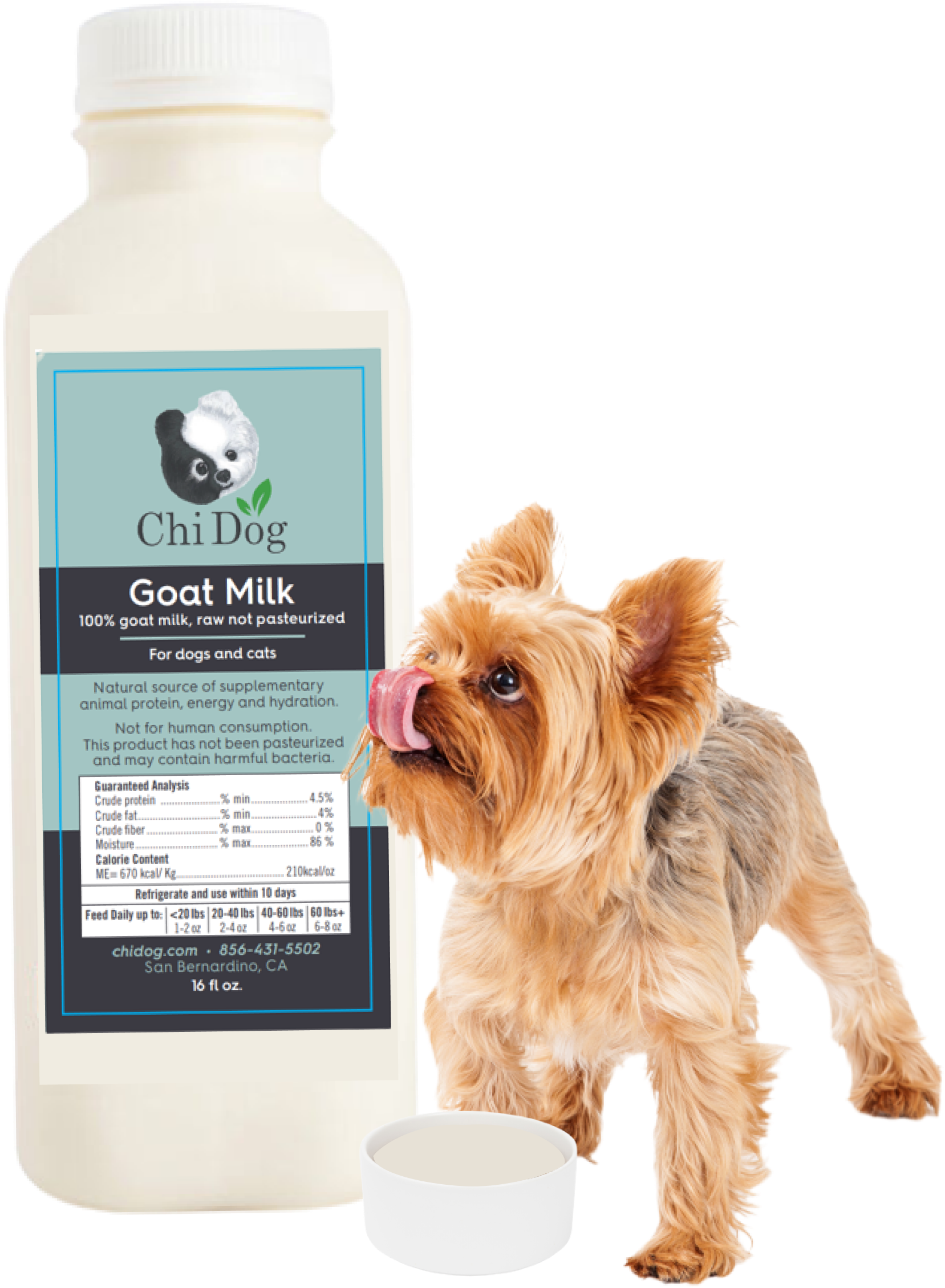
IBD Dog Food: The Best Option For A Sensitive Stomach
For dogs with inflammatory bowel disease (IBD), life can be extremely difficult and uncomfortable. As pet parents, we know that you will do whatever it takes to make your sweet pooch feel better, and if they are struggling with stomach issues, an IBD dog food can be one of the best ways to improve their health and support their overall health.
What Is IBD?
Inflammatory Bowel Disease (IBD) in dogs is a chronic condition where the lining of the gastrointestinal tract (GI tract) becomes inflamed, leading to symptoms like vomiting, diarrhea, weight loss, abdominal pain, and poor appetite. This inflammation occurs because immune cells in the GI tract mistakenly attack the lining, disrupting normal digestion and nutrient absorption.
Inflammatory bowel disease in dogs can present with a variety of symptoms due to inflammation in the GI tract, including:
- Chronic Diarrhea: Frequent, often loose or watery stools.
- Vomiting: Persistent or intermittent vomiting, sometimes with bile.
- Weight Loss: Dogs may lose weight even if they have a normal or increased appetite, as nutrient absorption is impaired.
- Poor Appetite or Picky Eating: Some dogs may refuse food or eat less.
- Abdominal Pain and Discomfort: Signs include restlessness, whining, or sensitivity to touch on the abdomen.
- Gas and Bloating: Excessive gas and bloating can result from digestion issues.
- Lethargy: Reduced energy levels or reluctance to engage in usual activities.
Why Do Dogs Develop IBD?
In many cases, we don’t know why dogs develop IBD, but some of the following factors may contribute to this disease.
- Immune System Dysregulation
In IBD, the immune system overreacts to what it perceives as harmful, such as bacteria, food proteins, or other foreign particles in the GI tract, leading to chronic inflammation. It’s often unclear what initially triggers this response.
- Genetic Predisposition
Some dog breeds, like German Shepherds, Boxers, and French Bulldogs, are more prone to IBD, suggesting a genetic link that predisposes certain breeds to immune-mediated GI issues.
- Food Sensitivities or Allergies
Certain proteins in foods, such as chicken, beef, or grains may trigger an immune reaction in the GI tract, leading to inflammation. This food allergy or intolerance can develop over time or be present from a young age. This seems to be one of the most common reasons why IBD develops and finding the best dog food for IBD can go a long way toward correcting this issue.
- Intestinal Microbiome Imbalance
A disruption in the balance of beneficial bacteria in the gut (dysbiosis) may contribute to IBD, as these bacteria play a role in digestion and immune regulation. An imbalance can trigger inflammation or make the gut more susceptible to it. Again, opting for a sensitive stomach dog food, specially formulated for dogs with IBD can be an excellent option.
- Environmental Triggers
Environmental factors, such as exposure to certain chemicals, stress, parasites, or chronic infections, may irritate the GI tract or trigger an immune response that leads to chronic inflammation. While removing these factors can improve symptoms, IBD is considered to be a chronic condition, which means it might not fully resolve even if all identified triggers have been removed.
Managing IBD: Holistic Dog Food Can Help
At Chi Dog, we adhere to the tenets of Traditional Chinese Veterinarian medicine. This holistic approach to medicine focuses on balancing the body’s energies, reducing inflammation and supporting digestive health.
As holistic veterinarians, we treat IBD using a variety of strategies and food therapy is one of our most powerful tools. Traditional kibble and canned foods can be two of the worst options for dogs, especially those with IBD or any type of gastrointestinal distress.
Kibble and canned foods are crammed with unhealthy filler carbs such as wheat, soy or corn and protein sources of dubious quality, often from diseased animals. These heavily processed dog foods also contain copious amounts of sodium and well as a plethora of artificial flavors, colors and preservatives. These ingredients are not a good nutritional match for any dog, but especially for dogs with IBD.
The best dog food for IBD is a meal that contains whole food ingredients that are lightly cooked. Raw dog food can be very healthy for some dogs, but for those with IBD or any type of stomach issues, gently cooking the ingredients makes digestion easier.
If you are searching for dog food for a sensitive stomach, we offer several Chi Dog diet plans that can be soothing for dogs with IBD and other similar conditions. Let’s take a look at each of these options.
The Water Diet
The Water Diet is a hypoallergenic diet that contains only lean pork, watercress, green peas, sweet potato and pearled barley. While some dogs are allergic or sensitive to red meat and chicken, lean cuts of pork rarely cause issues. High-fat proteins also can be problematic, but, again, we use extremely lean cuts of pork.
While dogs with IBD often struggle with grains, we’ve included pearled barley because it is easy to digest and still provides a high level of nutrition. Barley does contain gluten, so if your dog is gluten-intolerant or gluten-sensitive, we might recommend a different diet plan.
The Water Diet is recommended for dogs with IBD, as well as for dogs that experience frequent diarrhea and vomiting or dogs with food allergies. If you’ve been searching for a kidney diet for dogs or your dog has urinary incontinence issues, the Water Diet also can be a great match.
The Wood Diet
While we typically recommend the Water Diet for IBD, the Wood Diet also can be a good option for dogs with a sensitive stomach. This diet option contains chicken, chicken eggs, brown rice, Chinese eggplant, carrots and broccoli. Brown rice is gluten-free, so if your dog has gluten issues, but is not allergic to chicken or chicken eggs, the Wood Diet may be a better option.
The Homemade Option
Dog parents also can create homemade dog food following the principles of TCVM which involves choosing foods that are easily digestible and anti-inflammatory. While we offer a few recipes on our website, here are a few foods that might be safely included in a homemade IBD dog food:
Proteins
Opt for lean, easily digestible proteins that are gentle on the GI tract:
- Pork: Lean pork, such as pork tenderloin can be a good option
- Turkey: Turkey is a lean, cooling protein that’s less likely to trigger inflammation, making it ideal for sensitive stomachs.
- Duck: Duck is a moderate-fat protein that is often hypoallergenic, well-tolerated, and can provide a good option for dogs with protein sensitivities.
- White Fish (Cod, Tilapia): White fish is low in fat and highly digestible, offering a gentle protein option for dogs with IBD.
- Egg Whites: Egg whites provide high-quality protein without the fat found in yolks, making them easier to digest and low in allergens.
Carbohydrates
Choose low-fiber, easily digestible carbs that don’t irritate the GI tract:
- White Rice: White rice is easy on the stomach and low in fiber, providing a digestible carbohydrate that can help firm up stools.
- Sweet Potato (in moderation): Sweet potato is gentle on digestion and offers some fiber, vitamins, and minerals that support gut health. Use sparingly to avoid excess fiber.
- Pumpkin: Pumpkin is a good source of fiber and is known for its soothing properties on the GI tract, helping to regulate digestion.
- Millet: Millet is a gluten-free grain that’s lower in phosphorus, making it a good choice for dogs with sensitive stomachs or kidney issues.
- Quinoa: Quinoa is another gluten-free, nutrient-rich grain that provides a gentle carb source and contains small amounts of protein.
- Pearled Barley: While barley is not gluten-free, it tends to be quite easy to digest and is an excellent source of fiber.
Fats
Healthy fats are important for providing energy and supporting coat and skin health but should be moderate in amount:
- Fish Oil (Salmon or Krill): Fish oil is high in omega-3 fatty acids, which have anti-inflammatory properties that may benefit dogs with IBD. Use in moderation and as recommended by a vet.
- Hemp Seed Oil: This oil does not contain psychoactive ingredients, such as THC, but it is highly anti-inflammatory which can benefit dogs with IBD.
A Word Of Caution
When creating homemade dog food, it is important to provide your dog with a balanced meal. Too much fat, too many carbs or not enough of these nutrients can be problematic, so we strongly advise you to talk with your veterinarian to ensure that the food you provide meets all of their nutritional needs.
At Chi Dog, we also have developed home cooking supplements that you can add to food to ensure that they have all of the vitamins and minerals they need, as well as alpha-linolenic acid, which is an omega-3 fatty acid.
Of course, a dog with IBD might also have other health concerns. For instance, you might need an IBD dog food as well as a low fat dog food for pancreatitis or a low copper dog food or perhaps a dog food for seizures. No matter what issues your dog may be experiencing, dietary changes can make a huge difference.
If you aren’t quite sure what to include in homemade dog food or which of our diet plans truly meets your dog’s needs, please contact us. Chi Dog was developed by holistic veterinarians and our main focus is to ensure that every dog has the best possible nutritional support.
Chi Dog: Holistic Nutrition For Dogs
If you’ve been searching for the best dog food for IBD, Chi Dog can be a good option to consider. We encourage you to click on the Get Started tab on our homepage and answer a few quick questions so that we can match you with the best diet plan for your unique dog. Again, please let us know if you have any questions about any of our products.


